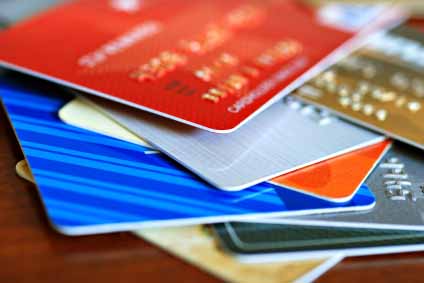Last Updated on Feb 27, 2020 by James W
It’s estimated that 10 percent of all Americans have fallen victims to credit card fraud, whether it be someone stealing their card or opening up an account under their name. On an international level, nearly $5.5 billion dollars is stolen from hard-working individuals each year, and as an online merchant, this number can greatly affect both your company’s reputation and bottom line. Aside from unwittingly being part in such fraud, accepting an unauthorized payment can greatly impact your customer’s confidence, and leave you vulnerable to potential fines, not to mention prosecution. If you accept payment online, there are a number of simple ways to prevent any potential credit card fraud.
That’s an Unusual Order
Did a single individual come onto your website and order a dozen of the same t-shirt on Tuesday morning, only to return a few hours later to make thesame bulk purchase? Many times, a thief will place large orders, especially for big tickets items that can easily be resold. The unscrupulous individual will then often place an identical order within a matter of hours, or in many cases, minutes. This is a huge red flag that the credit card number is fraudulent or stolen, so don’t hesitate to deny the purchase and investigate it further, or hand over the information to the authorities.
Always Check the Computer’s IP Address
Here’s another scenario you might encounter as an online merchant. Your website sells antique clocks, and a buyer from Fresno, California uses what seems to be a legitimate credit card number to make a substantial purchase. Upon further investigation, you discover the computer’s IP address is located in Romania. Installing geolocation software onto your computer can help you determine the distance between the buyer’s credit card billing address and the physical location of his computer. If the distance is suspicious, you need to stop the transaction immediately.

Learn About the Dangers of an Anonymous Proxy Server
Checking a purchaser’s IP address is a simple way to determine the transaction’s legitimacy, but many tech-savvy thieves are using anonymous proxy servers, which allow them to mask their computer’s real IP address. There’s a low-cost way to monitor the buyer’s IP address to ensure it’s not anonymous, however. Several services, including FraudLabs, will monitor the purchaser’s IP address and compare it to a list of known anonymous proxy servers. If the IP address is fake, the service will alert you immediately.
Check the Phone Number and Zip Code
Checking to see if the buyer’s phone number and the billing address zip code match-up is a quick, free way to validate the credit card information. Many thieves assume the merchant isn’t going to double check this information, and will merely type in a bogus phone number. If the area code and zip code don’t match, consider this a major warning sign that the transaction isn’t authentic.
When in Doubt, Contact the Credit Card Company
An order was recently placed on you website that exhibited many of the above-mentioned characteristics and you aren’t quite sure if you should continue with the transaction. When in doubt, it’s never a bad idea to contact the credit card company directly. Ask the issuer to confirm the account details, including the individual’s name and mailing address, and if the card has been reported lost or stolen. If the mailing address doesn’t match or the card was reported stolen, don’t hesitate to report the transaction to the issuer.
Ask for More Information
Your purchaser may value his privacy above anything, but when it comes to credit card fraud, never assume you’ll anger him by asking for a little more information. In the event of a suspicious order, don’t hesitate to contact the buyer by telephone and ask him to verify his name, the billing address as well as the credit card’s number and expiration date. If you’re still not satisfied, request the buyer fax a copy of his photo ID. If the purchaser is unwilling to do so, do not continue with the transaction.
If you’re ready to begin accepting credit card payments online, don’t hesitate to contact a reputable, secure merchant services company.
About the Author: Tammy Majors is a small business owner and guest blogger. Her online small business sells vintage clothing and she has experienced a spike of growth lately. Due to her growing popularity, she constantly seeks more information on how to protect her customer’s transactions.




